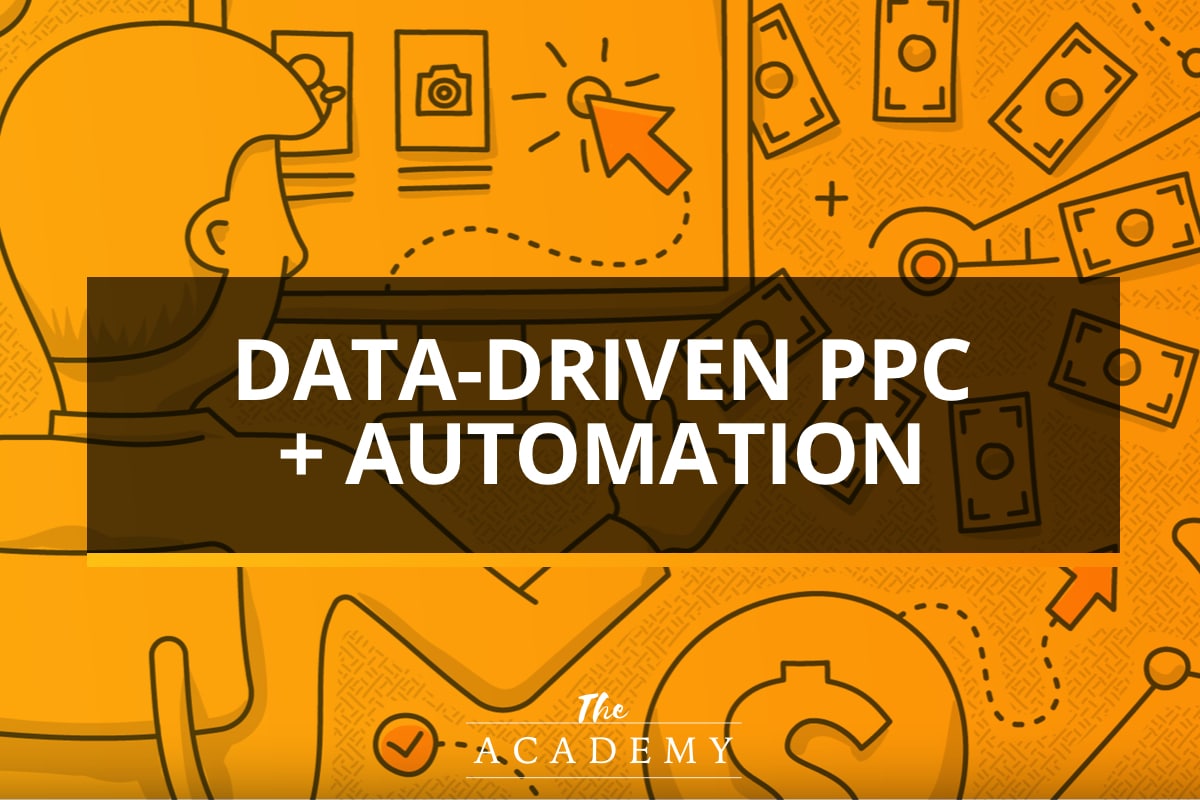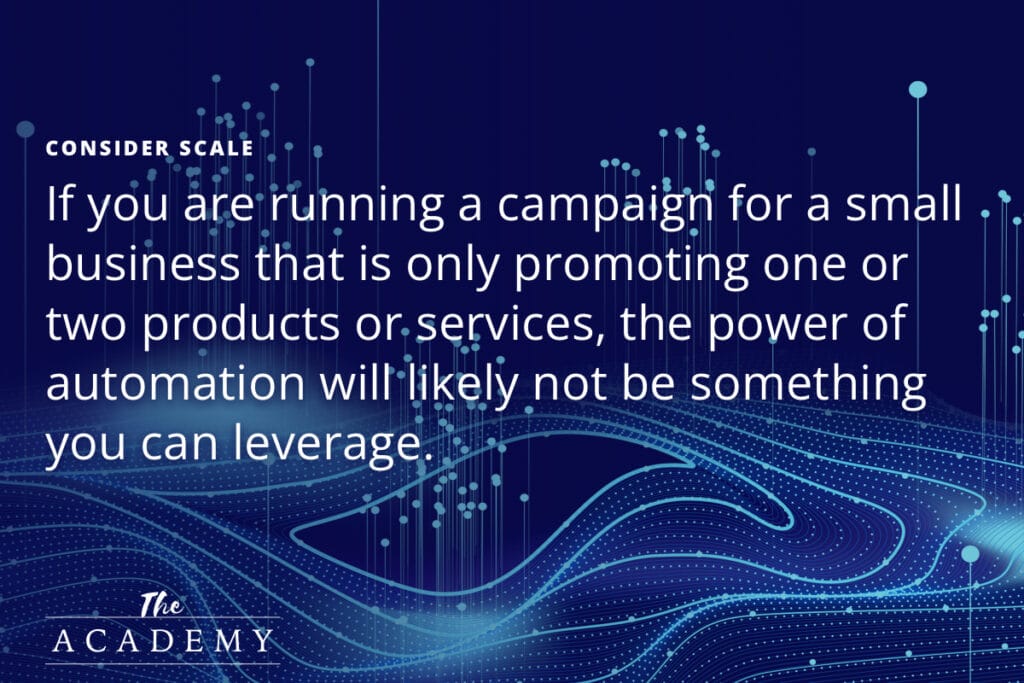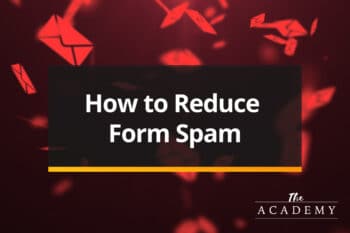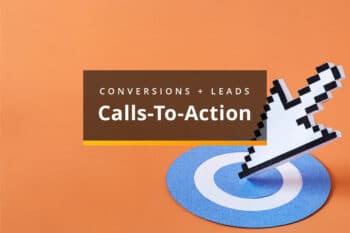
One of the earliest forms of paid marketing on the web, pay-per-click (or PPC) ads continue to be as relevant today as they were years ago. A good PPC campaign can drive a steady stream of affordable traffic to your website. Of course, that’s only true of a “good” campaign. If yours is struggling, you could find yourself paying too much for leads that won’t end up converting in the end.
Turning to automation is one important way digital marketers can get more for their PPC dollars. Given the vast quantity of information that is available on PPC platforms, and the information that is generated once you have your own campaigns up and running, it’s nearly impossible to sort through the data to find meaningful insights manually.
This is where automation can save the day. Leveraging advanced technologies to help you figure out who the right audience is and what kind of content you should present to them can elevate your PPC game to new heights.
Why Pay-Per-Click?
Before we dive into the subject of automation and how it can help with PPC, we first should back up for a moment and talk about PPC in general. Why is it such a useful tool for digital marketing campaigns? Consider the following benefits:
- Immediate traffic. Many of the other methods of traffic acquisition that are available to businesses with an online presence take time to yield results. That’s not the case with PPC marketing. You are paying for clicks, and those clicks equal traffic, so you can turn this source of visitors on and off like a faucet. Whenever you want to drive traffic, and you have some money to spend, you can invest in PPC and bring in people right away.
- Easy to manage spend. Small businesses tend to love PPC because of the way it can be used with even a very modest budget. Other advertising options might come with a significant upfront investment and might be out of reach for your company as a result. There are no such worries with PPC. Even just a few dollars per day could start to bring in some traffic and help you find your place in the market.
- Simplicity. You’ll find that with just a bit of practice you can be producing good PPC ads in short order. The format of the typical PPC ad is pretty straightforward, and after you learn a few basics about how to write a good ad, you’ll be on your way. Also, plenty of professionals specialize in this kind of work, so you could bring in a pro if you need assistance or don’t have the time to do it yourself.
- See direct results. When you choose to pay for your digital advertising per impression rather than per click, you don’t really get a clear picture of what is happening with those ads. Are people seeing them and then visiting your site later without actually clicking? Are the ads just being ignored? It can be hard to tell. With PPC, you only spend money if a click occurs, helping you to see how your ads are being received and what kind of results they are generating.
No matter what it is that draws you to the idea of PPC ads, it will always be essential to build the best possible campaign for your business. While PPC has a lot to offer, it is incredibly competitive, and you’ll have to constantly refine and improve your ads to get the results you desire.
What Automation Brings to the Table
At this point, there should be no question about the value of PPC and how it can boost your marketing efforts. If you are just getting started with PPC, you’ll be impressed by what a well-executed campaign can mean for your business as a whole. So, why dive into the world of automation as it relates to your ad campaigns? Let’s look at how automation can help you get excellent results while saving time along the way.
- Create bulk copy. Managing a huge ad campaign with hundreds or thousands of products to be promoted can simply be overwhelming for a small marketing department. The task of writing ad copy at that kind of scale might be more than you can manage with your team. Rather than spending significantly to outsource that writing or to bring more people into the department, allow AI and automation technology to write copy for you using data that has been gathered from the campaign. This is an incredibly powerful way to scale up a PPC campaign without incurring the costs that would typically be associated with advertising on such a large scale.
- Getting your bids right. It’s rather easy to spend too much per click when competing for competitive PPC search terms. This is something else you can get around with some help from AI, however. Automating the bidding process will dramatically reduce the amount of time you spend managing your bid levels, yet you can still remain competitive and bring in the right amount of traffic. Beyond time savings, you might find that an algorithm can manage bids more effectively than a human anyway, leading to an optimized process that saves you money for every visitor you acquire.
- New ideas. Through automation, you may be able to uncover new opportunities and strategies that would have otherwise been buried in mountains of data. It’s beyond the scope of a team of humans to sort through the amount of information that is created as a campaign runs, but computers can do so with ease. Skipping the use of automation will likely mean missing out on opportunities you could have enjoyed otherwise.
Getting Started with PPC Automation
Explore Automation Options in Google Ads
While there is plenty to like, there are also some hurdles to getting started with automation, as the tools can be a bit intimidating and it can be hard to know where to make your first move. For that reason, we would suggest looking at the automation options in Google Ads as a good place to dip your toes in the water. Google Ads is already the major player in the PPC space anyway, so it makes sense to start here. Virtually every mainstream ad platform has some automation tools now available, so you can gradually expand your use of AI once you get comfortable and see how things are working.
Understand Campaign Goals
To use automation properly, you’ll want to first decide on the goal of your campaigns. The automation tools need to know what you are trying to do before they can make sound decisions on your behalf. It’s common for campaigns to be aimed at either getting traffic in general or getting leads with the hope of converting sales. Knowing which of these you are trying to do, and not blending the two in your campaigns, is essential for good PPC in general and for automation specifically.
What Counts as a Conversion for You?
One other tip that will help you get started on your PPC automation journey is to think about what you are going to track as conversions for the purposes of your campaigns. Be sure to note that in this context, a “conversion” does not strictly refer to making a sale. Rather, it can be any action that you want a visitor to your site to take.
You might want them to land on your site and join your mailing list, consume some content you have created, or take some other kind of action. Anything that can be measured by the automation tools can be used as a conversion and it is these conversions that will help the AI learn what it needs to know about how your campaigns are performing and how they can be improved.
When Automation Isn’t the Right Choice
This article is all about extolling the virtues of automation in the world of PPC. But automation isn’t perfect, and it’s not the right choice for all situations. Sometimes, you’ll be better off just continuing with the traditional method of building and managing a PPC campaign, and you can leave the automation tech on the sidelines until the need is there.

The main thing to consider is the size of your campaign. If you are running a campaign for a small business that is only promoting one or two products or services, the power of automation will likely not be something you can leverage. Automation really shines when scale is involved, so this is an opportunity that should grab your attention as your PPC campaigns get bigger and bigger. There just isn’t the kind of data involved in a small campaign to let automation do what it can do best.
Also, if you are getting ready to start your first PPC campaign, it’s worth considering that you might want to do it the “old-fashioned way”—at least at first. There is a lot to learn in PPC, but you might miss some of those lessons if you turn over the campaign to AI right from the start. Get some experience building your own campaigns and then start to sprinkle in automation in areas where the time savings and data analysis will be of value to you.
A Word of Warning
Before we wrap this up, we’d like to point out one important thing about automating your PPC campaigns…
Automation does not mean you can just leave these campaigns along and expect them to thrive for months or years to come. That’s just not how the game works. As the old saying goes, “if it was that easy, everyone would do it”. You’ll need to continue to play an active, attentive role in every campaign, monitoring results, making adjustments, and properly managing spending.
A fully-automated PPC campaign isn’t likely to be the most successful option for your marketing needs, as automation still can’t entirely replace what a human can bring to the table. With that said, automation does offer some big benefits when deployed correctly, and we hope this article will provide the motivation you need to further explore how it can work for your organization. Good luck!
Most Popular Articles

Seeing Favicons in Your Google Search Results? Here’s Why…
Have you noticed anything different in your Google Search results lately? Google added tiny favicon icons to its organic search results in January. It was…

Business Growth and Digital Marketing News & Tips 4-14-24
Did you know? It’s five to twenty-five times more expensive to acquire a new customer than to retain an existing one. Increasing customer retention by…

Business Growth and Digital Marketing News & Tips 3-28-24
With the desire for precise measurement tools to determine ROI, there has been a rise in attention metrics. These metrics, which often utilize eye-tracking data,…








